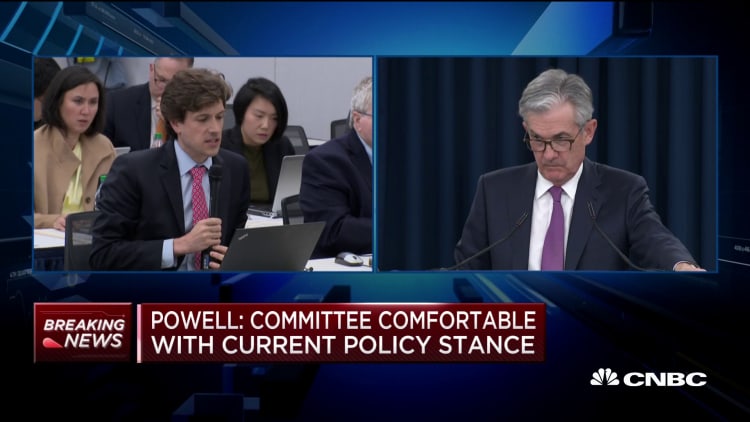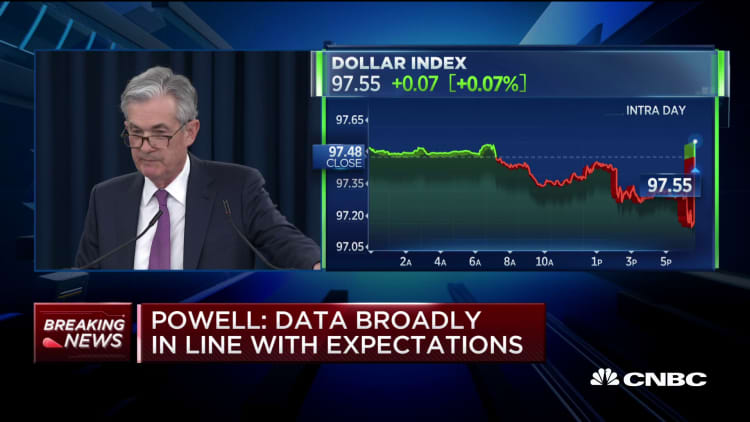It only took one word from Fed Chair Jerome Powell on inflation to send the markets reeling, and that word was "transitory."
Traders have been speculating that recent weaker inflation readings would concern the Federal Reserve so much that it would cut interest rates later this year. Powell knocked that idea, by explaining that the central bank still sees the weakness as the result of "transitory" factors, such as portfolio management services, lower apparel prices and airfares.
The Fed's target on inflation is 2%, and the core PCE rate watched by the Fed fell to a surprising 1.6% in the first quarter.

"We suspect transitory factors may be at work," Powell said, adding inflation should return to the Fed's target over time, and then be symmetric around its objective. Powell was commenting at a news briefing, following the Fed's two-day meeting.
"If we did see inflation running persistently below, that is something the committee would be concerned about and something we would take into account when setting policy," he said.
Powell said the Fed believes a number of issues were holding back inflation but it's likely they are transitory like the change in cellphone rates that impacted inflation several years ago. "We're going to be watching these things carefully to see if that's the case," he said.
Treasury yields fell, the dollar strengthened and stocks sold off after Powell's comment, and also after he described some of the risk factors impacting the economy as moderating.
"Transitory was word of the day," said Michael Schumacher, director rates at Wells Fargo. "If you look at pricing for fed funds futures for the end of 2019, it moved by about nine basis points. The market is looking a lot more reasonable."
Before the Fed briefing, the fed funds futures were pricing 25 basis points of easing by December.
Schumacher said the market also reacted to the fact that Powell stressed that the Fed is not moving in either direction at this point, though it sees improvement in the global economy and less threat from risk factors, like trade and Brexit.
"They're in the middle at this point, not sitting on either end of the teeter totter, which is what they had been telling people, but the market didn't really believe it," he said.

Stocks were flattish before the Fed statement, and turned negative when Powell began to speak about inflation.
The yield on the jumped to 2.30%. The 2-year correlates closely to expectations for Fed policy, and its low before the Fed's 2 p.m. statement was 2.20%.
"The market was pricing in this rate cut. They want a rate cut and this was basically Powell saying, 'sorry but we're not.' You have gold down, the dollar rallying and Treasurys selling off," said Peter Boockvar, of Bleakley Advisory Group
On Tuesday, President Donald Trump criticized Fed policy, saying it was holding back the U.S. economy. He said the Fed should cut by 1 percentage point and restart a program of quantitative easing, a policy tool used during the financial crisis.


